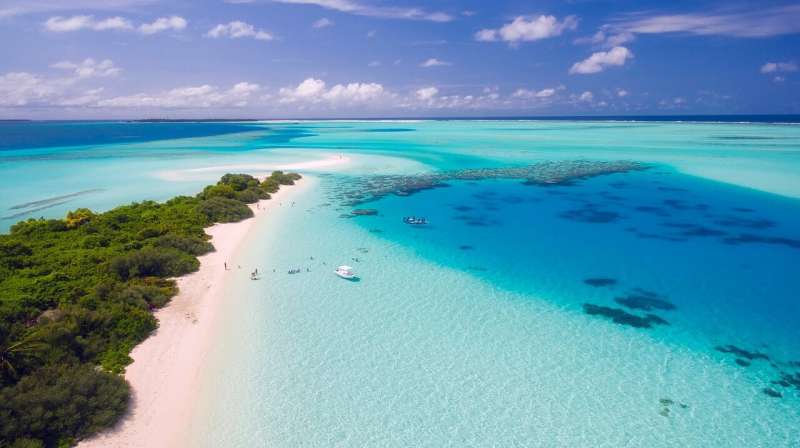Why is the ocean salty? Why the world’s biggest bodies of water have so much salt.

There’s nothing quite like taking a dip in the ocean in the summertime. Sand, sunshine and the smell of salt water are practically staples when the weather gets warm.
The only thing that’s not so pleasant about the ocean is accidentally swallowing a mouthful of salt water during an underwater dip or a rogue wave. Many animals thrive in the sea water that is their home. Certain fish, sharks, turtles and even penguins have evolved to secrete the salt from the ocean water, which helps them use it for drinking water.
Why is the ocean salty?
The ocean’s salt comes from two sources—runoff from the land and openings in the seafloor.
Rocks that end up in the ocean water are the primary source. Rainwater, which is slightly acidic, erodes rocks over time. The eroding rocks release ions that eventually end up in the ocean after they pass through streams and rivers, according to the National Ocean and Atmospheric Administration (NOAA).
There are also hydrothermal fluids, which come from openings at the bottom of the ocean, explains NOAA. Ocean water heats up from magma at the Earth’s core when it seeps into cracks in the seafloor. The heat causes chemical reactions, including underwater volcanic eruptions, which release minerals into the ocean. This process also causes water to lose oxygen, magnesium and sulfates and pick up iron, zinc and copper.
Another explanation for the ocean’s saltiness, says NOAA, is salt domes, which are vast salt deposits formed over time.
Why aren’t other bodies of water salty?
Not all bodies of water are salty like the ocean. If you accidentally swallow a bit of river or pond water, you might notice the lack of salt. This is because rain replenishes the fresh water in rivers and streams. The ocean, on the other hand, collects salt and minerals from every river that flows into it. According to NOAA, rivers carry about four billion tons of dissolved salts to the ocean annually.
Which ocean is the saltiest?
Of the world’s five ocean basins—Pacific, Atlantic, Indian, Southern and Arctic Oceans—the Atlantic Ocean has the highest salinity, says the National Weather Service. This is because salinity decreases near the equator and at both poles. The tropic’s heavy rainfall near the equator decreases the salinity as the fresh water falls into the salty ocean.
The National Weather Service says the Red Sea has the saltiest ocean water with a salinity level of about 40%, which is due to the region’s high evaporation rate.
Is swallowing salt water from the ocean bad for you?
In large quantities, yes. Accidentally swallowing a small amount of seawater during a swim won’t make too much of an impact. Still, NOAA warns humans aren’t meant to drink salt water. The salt content in the ocean is much higher than what the human body can process, and there can be deadly consequences if overconsumed.
Theoretical model suggests saltiness of Enceladus’s oceans may be right to sustain life
(c)2022 USA Today
Distributed by Tribune Content Agency, LLC.
Citation:
Why is the ocean salty? Why the world’s biggest bodies of water have so much salt. (2022, July 25)
retrieved 26 July 2022
from https://phys.org/news/2022-07-ocean-salty-world-biggest-bodies.html
This document is subject to copyright. Apart from any fair dealing for the purpose of private study or research, no
part may be reproduced without the written permission. The content is provided for information purposes only.
For all the latest Science News Click Here
For the latest news and updates, follow us on Google News.

